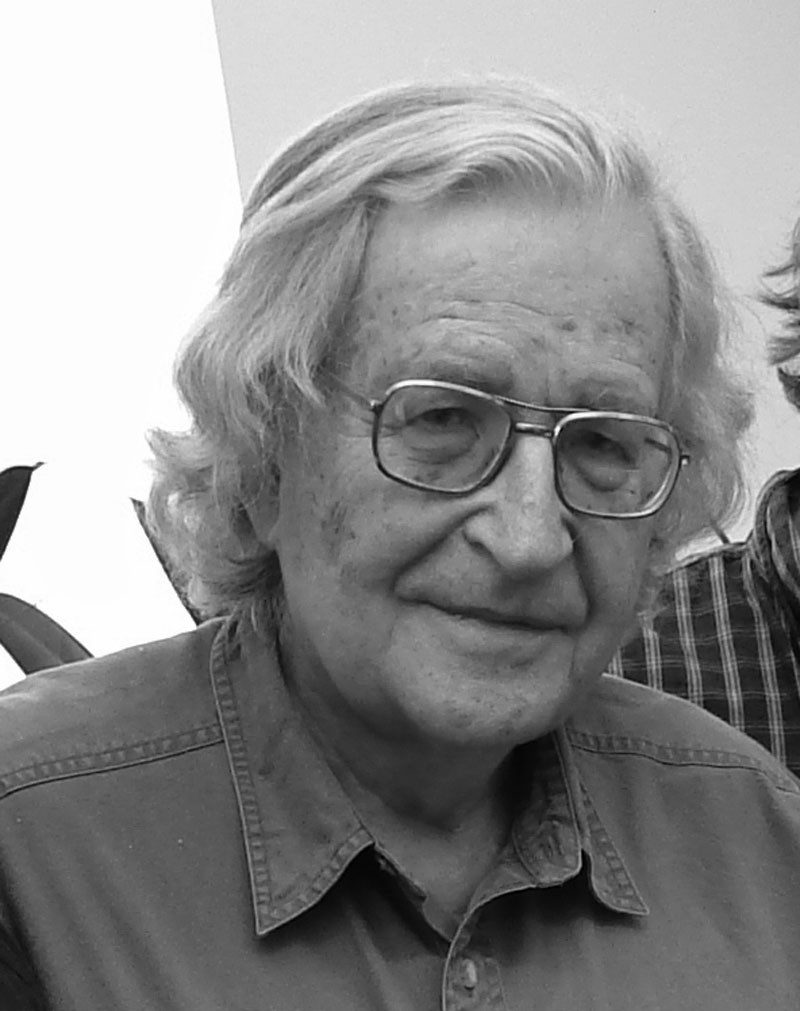
Any observations about the current state of the environmental movement?
I don’t think there is an organized, centralized movement. There’s a general range of agreement, including from scientists, that the problem is extremely serious, and while there are a lot of uncertainties with regards to what could happen, there’s a consensus that the longer we wait, the greater the cost to future generations.
Some serious socio-economic changes have to be made. We’ve got this unsustainable way of life, particularly in the Western world, particularly in North America. The atomization of the population and the drive towards unwarranted consumerism and indebtedness have created very serious social, economic and cultural problems which have to be overcome. There are no structures around where people can integrate and begin to organize themselves; those have to be rebuilt anew. There are many people involved in environmental issues but they are very separate from one another. People in one corner of town don’t know what’s happening in the other corner, and that has to be overcome.
How do we bridge these divides?
There’s no magic key for that. It has been done in the past and has been very successful. How did the women’s movement develop? From very small groups that coalesced. Very small groups of women getting together changed the country enormously. Or the civil rights movement. Or the labour movement. These were really hard struggles for years, in the U.S. in particular.
It’s just a matter of hard work and dedication. And it’s really hard in this case because people are going to have to change their lifestyles. It doesn’t mean a worse lifestyle, just a different one – one that you’re not used to, that has to be recovered. In fact, in many ways, it’s a lifestyle that did exist but was destroyed.
How do we recreate it? The same ways it was done in the past. It doesn’t happen by itself. There are models in our own history and some right in front of us today. Latin America is the most exciting place in the world; major changes are taking place based on mass popular movements. Take Bolivia, the poorest country in Latin America. If poor peasants can organize and take over the political system in Bolivia, then it’s ridiculous to say that we can’t here. They did it. We’re not doing it, so that’s our problem.
So what’s holding us back?
What’s holding us back is the last century of intense efforts to atomize people, to drive them towards the superficial things in life, like consumption. You have to fabricate consumers. You have to make people hate governments. The mentality that’s been fostered is that there is this alien force out there – the government – that’s stealing your hard-earned money.
The corporate sectors, despite their words, want a very powerful state that intervenes drastically in the economy and in their world, but for their own interest, not the public interest. They want you to hate the government because the parts of the government that the population wants are there for the people’s benefit. I think people understand this intuitively, which is how you get the finding that 80 per cent of people believe the country is run by “a few big interests looking out for themselves.”
But the isolation and atomization are such that people feel they can’t do anything about it. In fact, some of the statistics are startling: one third of the population thinks the Bush Administration blew up the World Trade Center, and there’s a whole movement trying to prove that. The interesting thing is that a large segment of the population thinks that the government is a huge gang of murderers trying to kill us and that we’re powerless to stop them.
You can’t call that desperation. It’s as if you’re living in a slave state and you’ve got a master you hate who is doing all kinds of horrible things to you, but you can’t do anything about it. That’s a very common feeling, and it’s been driven into people’s heads through huge propaganda efforts. After the Second World War, for example, all over the world, there was a wave of radical democracy. People really wanted the world changed and made more democratic. It was a result of the Depression and the war; those just got people thinking. What followed was a huge public relations offensive to drive this out of people’s heads; extraordinary efforts that have been pretty well studied. Part of it was getting people to hate government.
In 1954, there were two movies that came out. One was very famous, called On The Waterfront. It was about this ordinary, honest bloke played by Marlon Brando who stood up against the corrupt union bosses. At the end of the movie he throws the corrupt union boss into the water. Everyone cheers and so on. It’s a movie for the working man, but against the unions. That’s very important. If you look at Republican Party propaganda, they presented Bush as a working-class bloke. He became the guy that hung around the bar and he’s pictured on the side of the workers.
There was another movie done that same year, which was far better in every respect, called Salt of the Earth. It was about strikes in the mine which were led by workers. It was a very moving film. Well, you know which one was more popular. That’s typical of the way sophisticated propaganda works.
How do people break out of that?
The fact is that, individually, most people have. But that socialization is combined with a sense that it’s just me; I can’t do anything.
Go back to the days when organizations and movements had to be built from scratch. There’s never some shining leader who comes along and says, “I’m going to lead you out of the woods.” These things are built up by consciousness-raising groups. The antiwar movement in the 1960s was the same way: finally, it reached the tipping point and you got large-scale mass organizations. Why does Canada have a health-care system? It wasn’t given as a gift; it came from union activism.
So what sorts of actions can help take us to the next level?
I think small actions here and there and elsewhere are fine, but they have to coalesce.
Take the antiwar movement again. When I got started giving talks in the early 1960s, I was talking to small groups of people in somebody’s living room or maybe a church basement. Or we’d have to set up a meeting at the university with 20 different issues just to get people out to hear about the Vietnam War.
This is one thing they don’t teach you in school or write about in the papers; it’s too dangerous. People aren’t supposed to know what they can achieve, working together.
Could the environmental movement reach the same scale as the other movements you mentioned?
It could be a big movement, but things don’t happen by themselves. When a bunch of black kids sat at a lunch counter, you couldn’t tell what was going to happen, but in a few years you had a mass popular movement. Or take the women’s movement: just a few consciousness-raising groups, and pretty soon it was a mass popular movement.
The environmental movement is different because we don’t have to convince anyone of anything. They already agree. In these other movements, we had to convince people that their ideas were wrong, and their commitments were wrong, their way of life was wrong. But here, I think you already have a general agreement. They might not agree in the Wall Street Journal editorial offices, but who cares?
The hard part is always going from understanding among individuals and small groups to integration and focused action. That takes effort and commitment. It doesn’t happen by itself; there are no manuals.
So where is the hope in all of this?
Let me put it this way. You basically have two choices: you can give up hope, feel hopeless and therefore ensure that the worst is going to happen, or you can have hope, and then try to realize the hope, and then there’s a chance that things will improve.
Given those choices, it’s not a choice. You have hope, of course.






